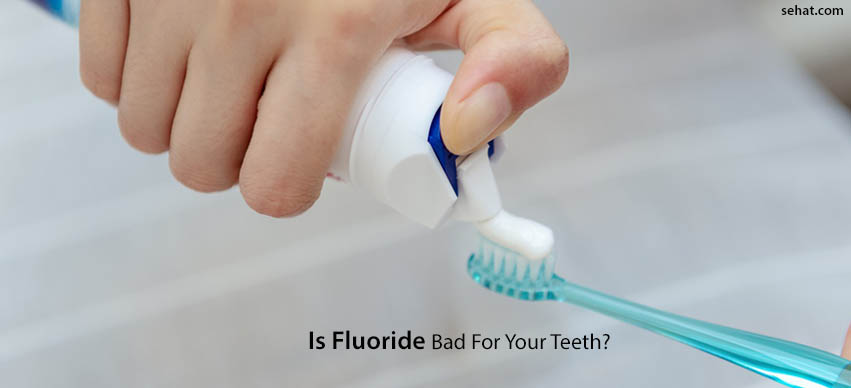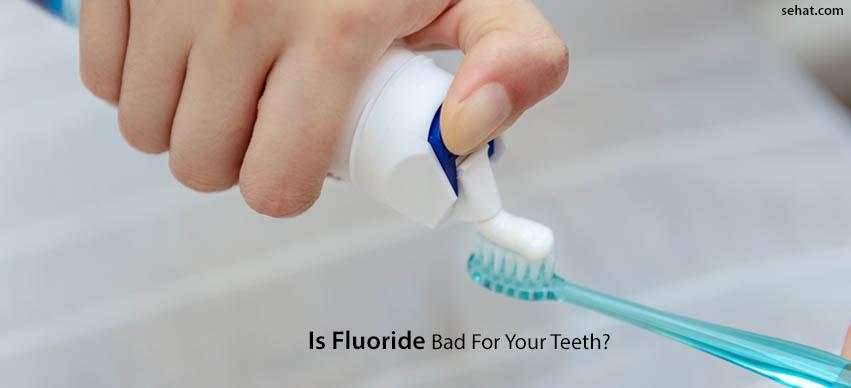What Comprehensive Oral Care Really Looks Like in Modern Den..
11 Min Read


Nowadays, tooth problems have become a regular health condition among many people throughout the world. Lack of proper hygiene, insufficient intake of essential minerals, or negative lifestyles are some of the major factors to blame for unhealthy and poor oral health. But how can you improve your oral health?
One way to go about this is by adding fluoride in your diet. In fact, most water distributors add fluoride to municipal water to reduce the prevalence of tooth problems among the local population. However, some individuals tend to criticize the effectiveness of fluoride for oral health. So, who should you trust, is fluoride bad for your teeth or not? Keep on reading to find out more.
Fluoride is a natural mineral that is found in freshwater, soil, and food. It's likely that you take fluoride if you drink municipal water. In fact, most tap water distributors in many countries including America add fluoride in tap water.
Besides tap water, another primary source of fluoride in dental products. Fluoride is a common ingredient in many dental products such as mouthwashes, toothpaste, and other chemical products. In fact, all the toothpaste that has been approved by the ADA - American Dental Association, contains fluoride.
Fluoride can also be synthesized in drinking water. It can also be found in certain natural foods, rocks, soil, and air.
Most studies suggest that adding fluoride to drinking water in low quantities is safe and beneficial for the teeth. Generally, there is no hard evidence that suggests that adding fluoride in water can cause many health problems aside from a few cases of dental fluorosis. However, some people suggest that fluoridated water is responsible for certain health problems such as arthritis, kidney stones, bone cancer, tooth staining, and white specks on teeth.
As with most artificial nutrients, an overdose of fluoride supplements can cause nausea, excessive sweating, tiredness, diarrhea, death, and much more. Therefore, make sure that you store your fluoride supplements as far away as possible from the reach of children.
Fluoride in both tap water and toothpaste is beneficial for your teeth if used in the right quantities. For instance, fluoride is said to prevent demineralization or promote the remineralization of teeth. Usually, when bacteria invade the mouth, it combines with sugar in the mouth to form acid. The acid, if not immediately washed off, could erode the tooth enamel and damage the teeth. Using fluoride toothpaste can help to protect the teeth from the acid. If the acid has already damaged the teeth, applying fluoride regularly will help you to heal and strengthen the damaged tooth enamel.
If you are prone to cavities, you should visit your dentist for fluoride treatment. This is because it has therapeutic and preventive properties against cavities. The dentist will apply fluoride directly on your tooth surface to prevent any chances of cavities. You can also use a fluoride spray, toothpaste, or gel for the same. It will prevent the development of cavities and encourage faster healing of cavities.
Furthermore, fluoride can be used for tooth decay. For instance, using fluoride regularly for children can strengthen the enamel in children and make their teeth more resistant to tooth decay. Also, fluoride plays a significant role in preventing or reducing the chances of bacteria such as Streptococcus mutants from producing damaging acids in the tooth. Usually, plaque on your teeth contains a variety of bacteria that encourages tooth loss and demineralization.
According to studies, a concentration of approximately 0.7 to 1.2 parts per million is considered safe and adequate for both the body and the teeth. According to ADA, children below the age of three years should only use fluoride toothpaste with fluoride levels of 1000ppm and between 1350ppm to 1500ppm for children above the age of 3 years.
Research suggests that the fluoride amount in toothpaste is adequate to provide added protection to your teeth besides that in tap water. While the amount of fluoride in tap water is considered safe, exposure to excessive levels of fluoride may present certain health risks.
If you are concerned or worried about your fluoride intake, you can consult your local water supplier. To reduce the intake, you can opt to drink bottled water, choose low-level fluoride toothpaste, or use fluoride-free toothpaste. However, do not shut it completely. If you are worried that you aren't having enough, you should consider buying a fluoride toothpaste or use fluoride supplements.
Excessive levels of fluoride in water or toothpaste can result in certain risks such as;
So, is fluoride bad for your teeth? Considering the above discussion, you might wonder if it's still a good idea or not to use fluoride. My advice would be that you should use fluoridated water or toothpaste but only in small quantities. You should consult with your dentist for the right dosage. However, if you notice any side effects after taking fluoride, then you should avoid it and speak to your dentist immediately.